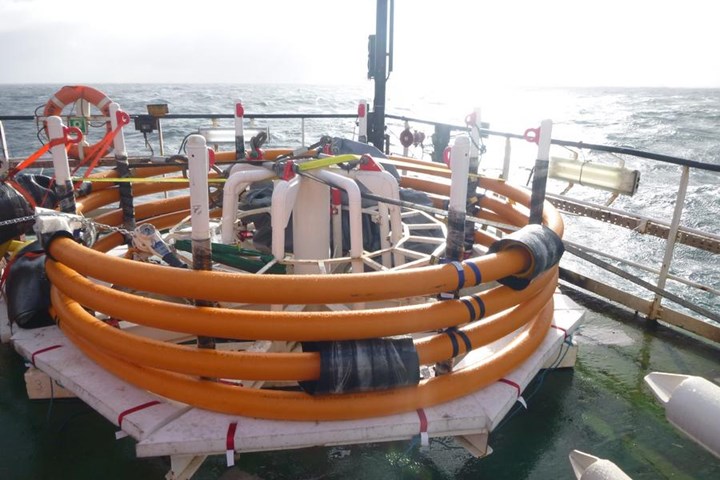Strohm supplies Australia with thermoplastic composite pipe jumper spools
Two-inch, 10,000-psi TCP jumpers will be supplied for the Woodside Julimar project. This is the first time Strohm’s TCP technology is being used in this region.

Photo Credit: Strohm
Appointed by Subsea 7 (Sutton, U.K.) for the design, manufacture and delivery of two thermoplastic composite pipe (TCP) jumper spools — which reduces installation, transportation and fabrication costs of well jumpers and pipeline spools — Airborne Oil & Gas (rebranded as Strohm in October, IJmuiden, Netherlands) has made successful inroads into the Western Australia oil and gas industry with its TCP technology being used for the first time in the region. According to the company, it is said to be world’s first manufacturer of fully bonded TPCs.
With the contract, the company says it will supply two-inch, 10,000 psi TCP jumpers to be used for monoethylene glycol (MEG) injection service. The TCP jumpers were planned for delivery later this 2020, and will be deployed in the Julimar field, located approximately 200 kilometers offshore northwestern Australia.
This forms part of a wider contract awarded by Australia’s leading natural gas producer Woodside (Perth) on behalf of the Julimar-Brunello joint venture (Woodside and KUFPEC) to Subsea 7 to design, procure, install and commission a 22-kilometer, 18-inch corrosion-resistant alloy (CRA) gas transmission flowline and an umbilical system.
Related Content
-
Optimizing a thermoplastic composite helicopter door hinge
9T Labs used Additive Fusion Technology to iterate CFRTP designs, fully exploit continuous fiber printing and outperform stainless steel and black metal designs in failure load and weight.
-
Composites manufacturing for general aviation aircraft
General aviation, certified and experimental, has increasingly embraced composites over the decades, a path further driven by leveraged innovation in materials and processes and the evolving AAM market.
-
Developing repairs for thermoplastic composite aerostructures
HyPatchRepair project proves feasibility of automated process chain for welded thermoplastic composite patch repairs.













